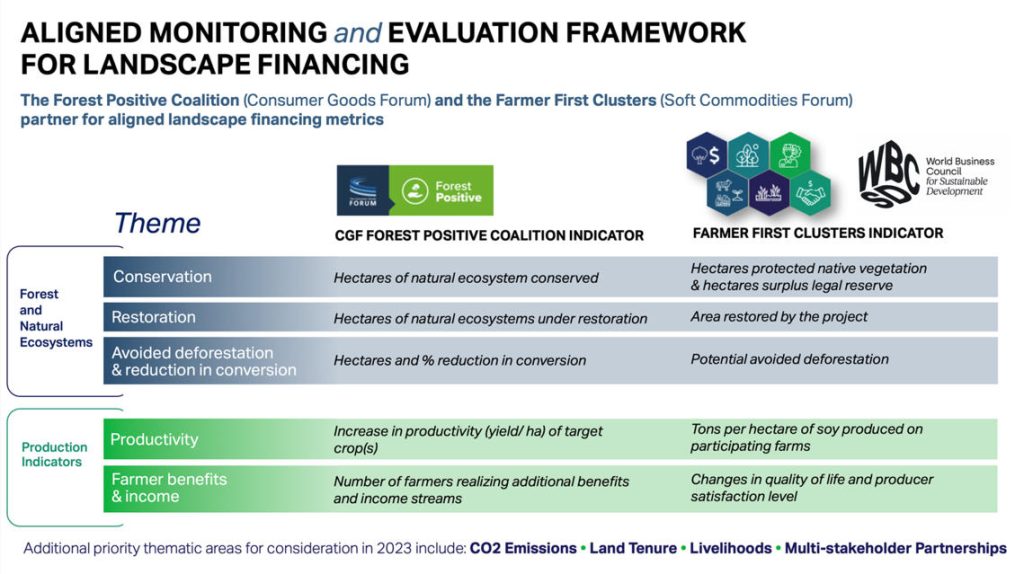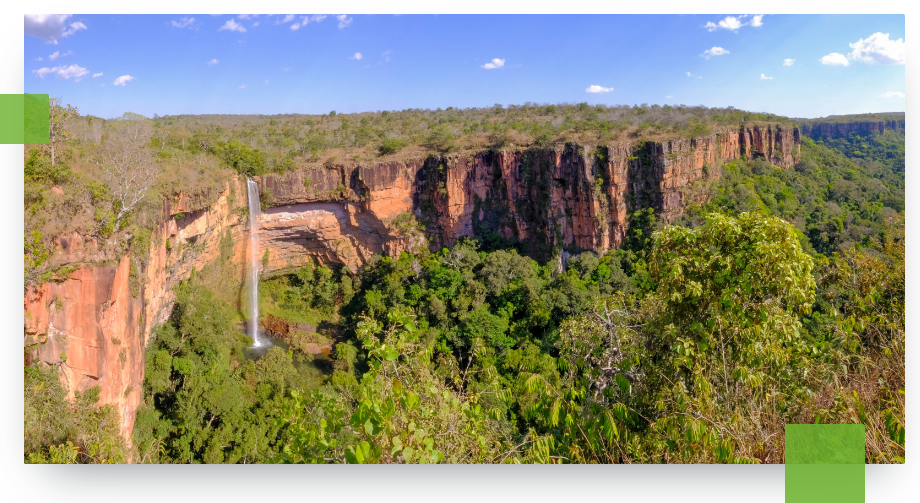This impact story was originally posted by the WBCSD here.
At the Soft Commodities Forum (SCF), we believe that achieving meaningful landscape-level transformation and acquiring the financing to get there require collaboration across food and agriculture value chains for standardized metrics. Collaboration as an entire industry enables increased impact by including more farmers, larger areas of land, and a higher volume of commodities. It also allows us to collectively understand a landscape’s profile and needs (including deforestation dynamics, availability of degraded pasturelands and remaining forest assets, and institutional maturity), a basis to deploy adequate solutions while learning together.
Both The Consumer Goods Forum’s Forest Positive Coalition (FPC) and the SCF share a responsibility to support supply chain transformation in commodity-producing landscapes. The SCF and FPC have therefore worked together over the past year to align on a common monitoring and evaluation framework to measure and report the impact of their landscape interventions.
The framework establishes a transparent progress reporting tool for value chain investors to assess and support the scaling of landscape solutions that generate nature- and climate-positive outcomes. Both the SCF and the FPC are supporting farmers in high-priority production areas, and by working together, can address common investment barriers collectively.
Collaboration on a common set of indicators is an important first step in the SCF and FPC shared responsibility to support the emergence of forest-positive landscapes. Both groups have identified a set of common indicators, pictured below, and will develop complementary metrics throughout 2023.

To develop this Monitoring and Evaluation Framework, the SCF and FPC are drawing upon best practices such as the International Social and Environmental Accreditation and Labelling Alliance (ISEAL) and Food and Land Use Coalition (FOLU) recommendations. Mobilizing and leveraging finance from both public and private sources is a key activity for these organizations, at both the global and national levels. FOLU Core Partners are well positioned to support the mobilization of larger-scale finance through several channels, including the Farmer First Clusters (FFC) initiative, launched during COP27 to support the transition to forest-positive land use management and commodity production.
Central to the FPC’s Strategy for Collective Action in Production Landscapes is the recognition that action beyond supply chains is needed to transform to forest-positive commodity production across the sector. Through its Landscape Reporting Framework, the CGF’s FPC monitors the progress of landscape initiatives to forest-positive, and by aligning priority indicators with the SCF, groundwork is laid for effective collaboration to realize positive landscape-level outcomes for climate, nature, and people.
The FPC and SCF are beginning the implementation of transformational landscape approaches in priority landscapes, and future collaborative efforts will aim to further mobilize supply chain actors, governments, and the finance sector in order to share lessons learned and scale up incentives at the landscape level.
